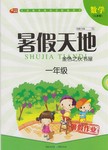题目内容
I walked into the Huddle House Restaurant in Brunswick, Georgia and sat down at the table. I picked up the menu and was to order something for breakfast.
"Excuse me," suddenly a soft voice came into my ear.
I looked up and _______ a nice-looking woman standing before me.
"Is your name Roger?"_______ asked.
"Yes, " I answered, feeling rather confused(困惑的) as I had never seen her before.
"My name’s Barbara and my _______ is Tony," she said, pointing to a middle-aged man sitting alone at the table by the window. He was _______ and weak.
"Tony White, from Landon School in Jacksonville, Florida." She added.
I looked at that man for a few seconds _______ I didn’t recognize(认识) him.
"I’m really sorry. The name doesn’t ring the bell(听起来不耳熟), "I said.
She walked back, began _______ with her husband and once in a while I saw her turn around and look directly at me.
I ordered breakfast and a cup of _______, sitting there, trying to remember who this Tony was. "I _______ know him, " I thought to myself. "He recognizes me for some reason." I picked up the coffee cup. Suddenly it came to me like a flash of lightning.
"Tony, the bully(横行霸道者), the bad boy!" I could _______ believe my eyes. "Jesus! He’s so thin now. Not the big boy that I ________ from back in 1977."
Everything came up to my mind. The time this ________ boy had made fun of my big ears in front of the girls in my class, and the time this big bully had pushed me against the walls in the hallway just to make himself ________ a big man to all other students.
"I am sorry, Roger," Tony rolled by me in the wheelchair, being pushed by his wife, raising his thin trembling hand. "I am so sorry for ________ that I did to you."
"I’m…I’m er…" I didn’t know ________ to say to him.
A few months later, I received a letter from Barbara. Tony was ____. Tony had been a fireman and had been seriously wounded in a task.
How I regretted(后悔) for not saying something to him but I no longer had the chance!
1.A. heard B. saw C. felt D. told
2.A. you B. we C. he D. she
3.A. husband B. father C. brother D. son
4.A. fat B. thin C. strong D. young
5.A. but B. and C. or D. so
6.A. listening B. writing C. talking D. playing
7.A. tea B. juice C. coffee D. milk
8.A. shall B. need C. might D. mustn’t
9.A. hardly B. really C. almost D. always
10.A. protect B. remember C. love D. miss
11.A. clever B. shy C. bad D. friendly
12.A. look after B. look for C. look at D. look like
13.A. everything B. nothing C. something D. anything
14.A. when B. why C. what D. where
15.A. healthy B. dead C. famous D. blind
 芒果教辅暑假天地重庆出版社系列答案
芒果教辅暑假天地重庆出版社系列答案Has anyone told you that it’s fun to play with English words? For a long time these “words within words” in English have been used to surprise and educate us…and they often make us laugh too. Now we go to learn about them.
Riddles(谜语) How did the animals open the zoo door? They used a monkey! What’s the longest word in English? Smiles—there’s a “mile” between the first and last letters! These jokes —a question followed by a surprising answer — are known as “riddles”. But the ones above are examples of a special kind of riddle, a riddle which is funny because a word is hidden within another word. Many English speakers are crazy about this kind of words with double meaning. And it can be found in texts written in English a very long time ago. But riddles are not the only example of “words within words”. |
Hidden words During Victorian times (1837—1901), the game of hiding words within a whole sentence became popular. Look carefully at this sentence—The king eats his lunch in a fine palace. Can you see that the countries “China” and “Nepal” are hidden in it? The Victorians even used hidden words to teach children history and geography at school. Today we still see hidden word games in books and magazines, but we also use hidden words in jokes. |
Palindromes(回文词) Palindromes are words and phrases which can be read the same forwards and backwards. The pop group “Abba”, for example, is a palindrome. The sentence “Was it a car or a cat I saw?” is also a palindrome. We find them interesting, but they can also be funny: I kept receiving emails about reading maps backwards, but then I realized it was just spam(垃圾邮件)! |
1.Which of the following is a riddle?
A. step—pets, part—trap B. hiding words within a whole sentence
C. silent—listen, the eyes—they see D. Which letter is a question? Y (Why) .
2.By reading the article we can know “___________”.
A. Riddles are the only example of “words within words”.
B. Victorians even used riddles to teach kids history at school.
C. “Was it a car or a cat I saw?” is a palindrome as well.
D. These “words within words” in English often make us cry.
3.The best title of the passage is ________.
A. It’s fun to play with words B. “Words within words” educate us
C. Riddles & Hidden words D. The pop group “Abba”

